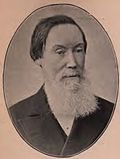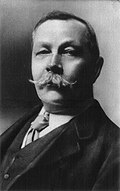| Edinburgh Central | |
|---|---|
| Former burgh constituency for the House of Commons | |
 Boundary of Edinburgh Central in Scotlandfor the 2001 general election | |
| Subdivisions of Scotland | City of Edinburgh |
| 1885–2005 | |
| Seats | One |
| Created from | Edinburgh |
| Replaced by | Edinburgh East Edinburgh North & Leith Edinburgh South West Edinburgh West |
Edinburgh Central was a burgh constituency of the House of Commons of the Parliament of the United Kingdom (at Westminster) from 1885 to 2005. It elected one Member of Parliament (MP) by the first past the post system of election.
Contents
- Boundaries
- Members of Parliament
- Elections
- Elections in the 1880s
- Elections in the 1890s
- Elections in the 1900s
- Elections in the 1910s
- Elections in the 1920s
- Elections in the 1930s
- Elections in the 1940s
- Elections in the 1950s
- Elections in the 1960s
- Elections in the 1970s
- Elections in the 1980s
- Elections in the 1990s
- Elections in the 2000s
- See also
- Notes and references
In 1999, the Edinburgh Central Scottish Parliament constituency was created with the same name and boundaries, and continues in use.
From 1925 until 1999, the Member of Parliament for the Westminster constituency was an ex officio member of the Board of Trustees of the National Library of Scotland. Since 1999, that role has been taken by the Member of the Scottish Parliament (MSP) for the Scottish Parliament constituency.





